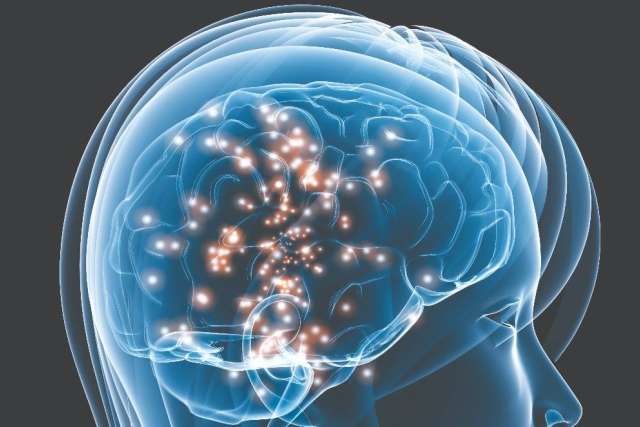Dear Doctor: Why do people who have a stroke lose the ability to talk? All of a sudden my grandmother started mixing up her words, and that’s how we knew something serious was going on. What happens to you when you have a stroke? How can we help her?
Dear Reader: The most common cause of a stroke is impaired blood supply to the brain. This is known as an ischemic stroke, and it can occur due to either a partial or complete blockage of a blood vessel. The result is a disruption in the delivery of oxygen and nutrients to the brain cells, without which they quickly begin to die. Less often, strokes are caused when a vessel in the brain leaks or bursts. Known as a hemorrhagic stroke, the resulting spill of blood into the space around the brain cells also causes cell damage and cell death.
Symptoms of a stroke, which appear suddenly, include numbness, weakness or paralysis that often occurs on one side of the body, impaired vision, dizziness, loss of balance or coordination, severe headache and the garbled speech you witnessed in your grandmother.
A third type of stroke is a transient ischemic attack, or TIA. Because the symptoms are temporary, sometimes as brief as a few minutes, it’s often referred to as a ministroke. However, a TIA should be treated seriously. It can indicate a serious problem and may be a precursor of a full-blown stroke.
In all cases, a stroke is a medical emergency. Always call 911. Immediate medical assistance is crucial, and driving someone to the hospital can cost you valuable time. Paramedics can begin lifesaving treatment the moment they arrive. This is important because patients who receive medical attention within three hours of the first symptoms have less disability after three months than those for whom care was delayed.

When the ability to communicate is affected due to a stroke, it’s known as aphasia. This occurs because one or more of the regions of the brain that control language and speech have been either injured or damaged. Someone who has had a stroke may not be able to translate their thoughts into coherent speech, and they may not understand what is being said when other people are speaking. Aphasia can also affect the ability to decipher the written word, and to write, as well. The good news is that many people with aphasia show improvement in the months, and even years, after a stroke.
Because some degree of aphasia often remains after the initial period of recovery, speech and language therapy is important. This involves regular sessions with specialists. The patient’s family and friends can also make a big difference. Engage with the person as you did before the stroke. Speak slowly, and give them plenty of time to speak. Use short sentences and easy words, but don’t dumb down the content of what you’re saying. Include the person in group conversations, and also in decision-making. Encourage their autonomy. And remember, the loss of someone’s ability to communicate due to aphasia has not diminished their intelligence. Behave accordingly.
(Send your questions to askthedoctors@mednet.ucla.edu, or write: Ask the Doctors, c/o UCLA Health Sciences Media Relations, 10880 Wilshire Blvd., Suite 1450, Los Angeles, CA, 90024. Owing to the volume of mail, personal replies cannot be provided.)




